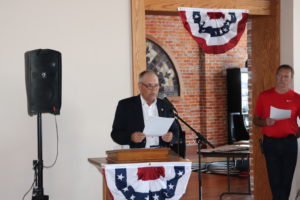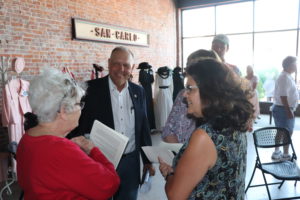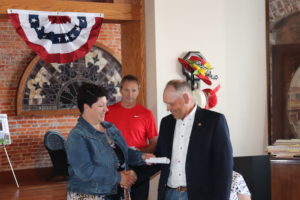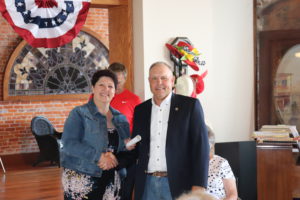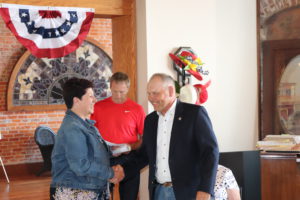The summer is a time for legislators to get out of their normal routine of being in Lincoln to debate bills and pass laws. One major focus of the interim is special committees and task forces. Some of these were formed out of legislative resolutions that were passed in May before adjournment. Others, such as the Building Maintenance committee, which I am a member of, only meet during the interim.
The Building Maintenance Committee is chaired by Sen. Erdman and exercises oversight of the deferred and preventive maintenance activities required in the Deferred Building Renewal Act. The committee is responsible for making investments in state building infrastructure for deferred repair, fire and life safety systems, access for the disabled, and energy conservation. The committee allocates approximately $20 million on an annual basis in building upgrades.
I had the pleasure of being appointed to all three of the committees I submitted my name for in the spring, which include: the School Finance Review Task Force, the Statewide Tourism And Recreational Water Access and Resource Sustainability (STAR WARS) special committee, and the Mental Health Crisis Hotline Task Force.
The Mental Health Crisis Hotline Task Force came out of LB247, and will implement a plan for Nebraska to integrate and utilize the 988 mental health crisis hotline. The task force will ensure that anyone who accesses a local mental health crisis hotline is connected to a qualified mental or behavioral health professional regardless of the time, date, or number of individuals trying to simultaneously access a local mental health crisis hotline. We have a shortage of mental health services in my district so this task force is an opportunity to get my constituents the help they need.
The STAR WARS committee, which came out of LB406, is an opportunity to improve the use of waterways and to increase tourism and economic development in Nebraska, and is chaired by Speaker Mike Hilgers. The task force will study potential flood-control infrastructure projects along the river basin of the lower Platte River and gather data and information to compile an analysis.
I am also a member of the School Finance Study Committee, which came out of LR141, and is conducting an in-depth study of the financing of the public schools in the state. The study is examining methods of financing, including methods used in other states, which would provide equitable educational opportunities across the state and offer alternatives to a heavy reliance on property tax. We are also looking at the option of using a measure of income as a component in the school funding and financing issues as they relate to the quality and performance of schools. As many of you know, this is one of the issues that I ran for office on and am still working hard to obtain equalization funds for all of the schools in my district and the state.
All of these committees and task forces give me the opportunity to work with different colleagues and build on relationships I have made at the Capitol as well as offer a chance to travel our beautiful state to help address issues on the ground.

